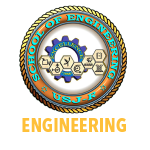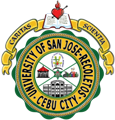Bachelor of Science in
Computer Engineering
About this Course
It is a profession that applies engineering principles and methodologies in the analysis, implementation and management of hardware, software and the integration of both.
The program provides students with enhanced knowledge and skill, through focused subject tracks in the areas of robotics, digital signal processing, embedded systems, computer architecture, interfacing technology, Very High Speed-Integrated-Circuit Hardware Description Language (VHDL), computer networks, software engineering, system analysis, and design. This program also focuses on developing students’ knowledge and skills in the design of the microprocessor and microcontroller that may be used in different scientific applications.
Vision
- Build an educational identity as a leading academic unit in the field of Computer Engineering.
- Build a research identity around the intersections of circuits and devices, embedded systems, computer sciences and information technology, data analytics and community/environmental needs
Mission
Program Educational Objectives (Unified):
- PEO 1 (Leadership) HOLD LEAD roles in the practice of Computer Engineering and its related fields (computer science, electrical engineering, IT services, and government)
- PEO 2 (Life-long Learning) Continue to gain new knowledge and skills through personal and professional development
- PEO 3 (Social Responsibility) Exemplifies the Josenian Values of Caritas et Scientia through involvement in community-oriented endeavours.
Student Outcomes:
- Apply knowledge of mathematics and science to solve computer engineering problems
- Design and conduct experiments, as well as to analyze and interpret data
- Design a system, component, or process to meet desired needs within realistic constraints, in accordance with standards
- Function in multidisciplinary and multi-cultural teams
- Identify, formulate, and solve computer engineering problems
- Understand professional and ethical responsibility
- Communicate effectively complex computer engineering activities with the engineering community and with society at large
- Understand the impact of computer engineering solutions in a global, economic, environmental, and societal context
- Recognize the need for, and engage in life-long learning
- Know contemporary issues
- Use techniques, skills, and modern engineering tools necessary for computer engineering practice
- Know and understand engineering and management principles as a member and leader of a team, and to manage projects in a multidisciplinary environment
- Understand at least one specialized field of computer engineering practice.
- Live out the core values of a Josenian to the rest of the local,national and global community.
Careers
- Project Manager / Engineer
- Network Engineer / Security / Administrator / Consultant
- Network Software / Firmware Developer
- Data Communications Engineer
- Computer Systems Software / Firmware Developer
- Automation Design Engineer
- Embedded System Engineer
- Software Tools Developer
- Test Engineer
- Systems Analysts / Designer
- Technical Support Engineer
- Research and Development Consultant / Engineer
- College Instructor
Admission Requirements
- completed Senior Highschool
Duration
Campus
Units and Electives
- 99 Academic Units
- 99 Elective Units
Contact Us
Magallanes Street, 6000, Cebu City, Philippines
Trunkline Number: (63-32) 253-7900
Email Address:External@usjr.edu.ph
School of Engineering
Trunkline Number: (63)(032) 253-7900 local 291



